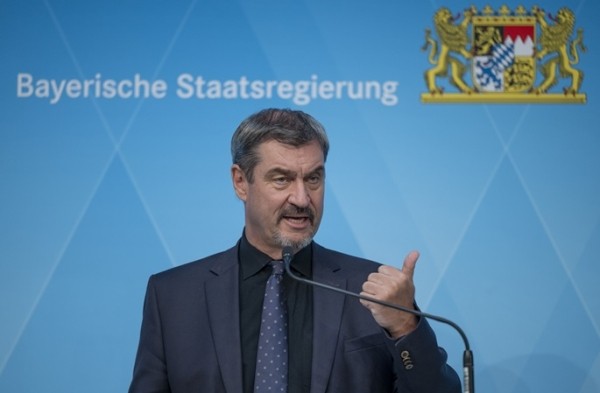
Another dispute was brewing between Germany's bickering coalition partners on Monday over the issue of restricting benefits for Ukrainian refugees, reported dpa.
Vice Chancellor Lars Klingbeil, from the centre-left Social Democrats (SPD), slammed calls from Bavarian Premier Markus Söder for Ukrainians to no longer receive the basic income support, known as Bürgergeld, in light of rising costs.
"Some of the proposals that have been made in recent days do not, I believe, help us to make progress together in the coalition," said Klingbeil on a visit to Washington.
Söder – the leader of the Bavaria-only Christian Social Union (CSU), which is part of the governing coalition with the SPD and Chancellor Friedrich Merz's conservative Christian Democratic Union (CDU) – on Sunday suggested Ukrainians should only receive benefits for asylum seekers, which are lower and often provided in kind or on a payment card.
The comments came after official figures showed that Bürgergeld payments rose by €4 billion to €46.9 billion in 2024. Ukrainian nationals, a large majority of whom fled their homeland following the Russian invasion in 2022, claimed €6.3 billion of this amount.
In response, SPD parliamentary secretary Dirk Wiese told dpa that the savings from cutting benefits for Ukrainian refugees would be minimal due to the bureaucratic effort involved.
"The increase in bureaucracy effectively cancels out savings," he argued.
Social Affairs Minister Bärbel Bas from the SPD refused to comment on Söder's proposal on Monday.
A spokeswoman for her office pointed to the coalition agreement between the CDU/CSU bloc and the SPD, which pledged to reform the Bürgergeld system, but only committed to restricting benefits for Ukrainian nationals arriving in Germany after April 1, 2025.
Klingbeil backed the decision in the coalition agreement, which he said was being "implemented as quickly as possible," and pleaded for the coalition partners not to fall into bickering.
However, Söder's comments have received backing from his centre-right colleagues.
Top CDU lawmaker Thorsten Frei, the head of Merz's office, criticized the fact that only one in three Ukrainians in Germany who are fit for employment are currently working.
The rate is far lower that in other European countries, CDU premiers have warned.
But labour market researcher Enzo Weber from the Institute for Employment Research (IAB) said "the integration of refugees in the labour market requires time," highlighting long waiting times for language and integration courses for Ukrainians in Germany.
"This could be done more quickly if language training and qualifications were offered alongside work," Weber argued.
The brewing dispute comes amid a difficult honeymoon period for Germany's new government, which only took office in May.
The coalition partners have clashed over issues such as nuclear policy and the nomination of judges to the country's Constitutional Court.
Reiche calls for reform
German Economy Minister Katherina Reiche also highlighted the importance of rewarding employment during a visit to the semiconductor company Infineon on Monday.
"It must be the case that working is more worthwhile than staying at home," the CDU minister said. "Those who go to work must feel that they have more in their pockets at the end of the day than those who do not."
Wiese meanwhile insisted that "those who exploit the system must be met with clear sanctions" in comments to the Redaktionsnetzwerk Deutschland media group.
He stressed that the majority of recipients want to be in employment. He also said many people are working, but have to supplement their income to make ends meet.
This is a clear sign that a higher minimum wage and better collective bargaining provisions are necessary, Wiese said.
Source: www.dailyfinland.fi


